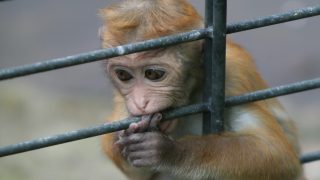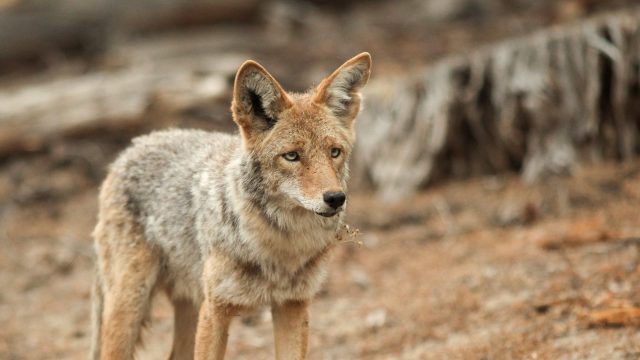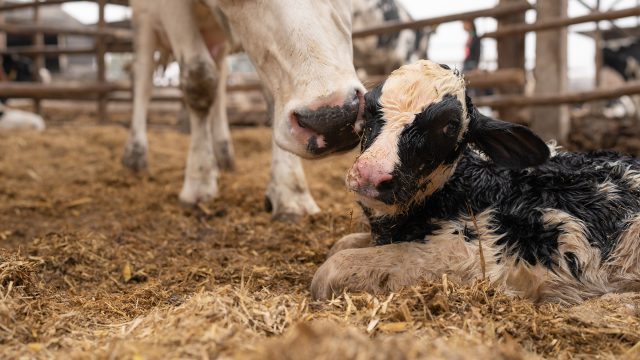
Primate Breeding Facility Failing to Provide Proper Veterinary Care
Animal Legal Defense Fund Files Complaint Against Primate Products For Veterinary Misconduct
For immediate release:
Contact:
media@aldf.org
Immokalee, Fla. — Today, the national nonprofit Animal Legal Defense Fund filed a complaint with the Department of Business and Professional Regulation against Florida primate breeding facility, Primate Products, as a result of reports of serious mistreatment of animals and apparent violations of Florida’s Veterinary Medical Practice Law. The primate species held at Primate Products include crab-eating macaques, rhesus macaques, and green monkeys.
In the past few weeks, news reports have indicated that Primate Products instructed veterinary technicians to engage in the unlicensed practice of veterinary medicine by killing the fetuses of pregnant monkeys, performing C-section abortions, removing the dead fetuses, and then packaging the bodies for sale to biomedical research entities. These unlicensed technicians were also reportedly instructed to perform spinal taps and bone marrow collection. In June 2015, a United States Department of Agriculture (USDA) inspection, conducted after a widely publicized People for the Ethical Treatment of Animals (PETA) undercover investigation, found several additional violations of the Animal Welfare Act including:
- Performing veterinary procedures such as amputations outdoors, in a nonsterile environment, which can cause infections and overheating;
- Keeping electrical cords in the animals’ enclosures, which led to three electrocutions;
- Keeping monkeys outdoors in freezing temperatures, which led to several cases of necrotic frost bite;
- Providing inadequate housing that failed to protect two monkeys who died from a bear attack;
- Chasing monkeys around their enclosures for extended periods in the heat, grabbing primates by the tail and prying them from objects they are holding, thus leading to several cases of tail degloving and rectal prolapse; and
- “Treating” rectal prolapse by turning monkeys upside down, shaking them, inserting a finger into the anus and pushing back the rectum—sometimes without anesthesia, lubrication or stitches.
“The Department of Business and Professional Regulation should open an investigation and consider disciplinary action based on apparent incompetency and misconduct related to the practice of veterinary medicine,” said Stephen Wells, executive director of the Animal Legal Defense Fund.
ALDF’s complaint is available by request.
Focus Area
How We Work
Related
-
Legal Petition Urges USDA to Adopt Comprehensive Regulatory Framework for Wildlife Services Program
The Animal Legal Defense Fund, as part of a coalition, submitted a petition for rulemaking to the USDA Animal and Plant Health Inspection Service urging Wildlife Services to phase out lethal control of wild animals, including prohibiting specific practices such as neck snares, M-44 cyanide bombs, lead bullets, and more.November 21, 2023 Press Release -
USDA Restricting Access to Plant-Based Milks in National School Lunch Program is Dietary Racism
Proposed rule would maintain an unnecessarily complicated and confusing process for children to get access to plant-based milkMay 11, 2023 Press Release -
Animal Legal Defense Fund Urges USDA to Strengthen Regulations for Handling and Exhibiting Wild and Exotic Animals
Recommendations aim to decrease risk of zoonotic disease spread, animal escapes and attacks, and psychological and physical harm to the animalsApril 11, 2023 Press Release



